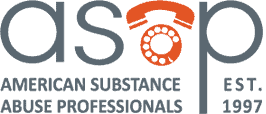By: ASAP
Maintaining a drug and alcohol free workplace is a top priority for many companies and requires someone with authority and a diverse set of skills to fulfill this essential role called the Designated Employee Representative or DER. This position is required under the Department of Transportation (DOT) 49 CFR Part 40 regulations, must be fulfilled by a company employee and cannot be a service agent or a contractor (DOT, 2015). The two main areas where a DER needs to have knowledge are DOT drug and alcohol testing policy, DOT drug and alcohol management and Service Agent administration.
DOT Drug and Alcohol Testing Policy
Keeping a drug and alcohol free workplace starts with preparing and updating a company’s DOT drug and alcohol testing policy. The DER is responsible for knowing the DOT drug and alcohol testing rules and how to clearly communicate the information to their supervisors and employees (DOT, 2015). They are the source of information for the drug and alcohol testing program.
In addition, the DER is the first line of defense in maintaining, communicating and enforcing company procedures for the drug and alcohol testing policy. When a supervisor follows their reasonable suspicion training and documents an employee being under the influence or impaired, the DER’s primary duty is to “ensure the timely removal of an employee from safety sensitive duty” (DOT, 2015. P. 8). The DER also removes an employee immediately from safety sensitive work when the Medical Review Officer (MRO) reports a positive drug test, the Breath Alcohol Technician (BAT) reports a positive alcohol test or the employee has a refusal to test.
DOT Drug and Alcohol Testing Management
If an employee tests positive or has a refusal to test on a DOT drug or alcohol test, the employer is required to provide the employee a list of qualified DOT Substance Abuse Professionals (SAP) to complete the DOT Return to Duty (RTD) process under 49 CFR Part 40.287. The DER is the first line of communication for the employee once they begin the RTD process. As soon as the employee completes their first clinical assessment with the SAP, the DER receives the initial letter directly from the SAP stating the evaluation has been completed and outlining the employee’s recommendations as their next steps.
After the employee successfully completes the recommendations, they see the SAP for a follow up appointment and the SAP determines if the employee is deemed eligible for the observed RTD test given by his/her employer or future employer, which supersedes a pre-employment test in this situation only. The DER becomes the last line of communication receiving the follow up letter from the SAP delineating the follow up testing plan and any aftercare recommendations according to CFR Part 40 Subpart O. These communications are a critical part of getting the employee back to work safely.
Service Agent Administration
An employer often involves a service agent/third party administrator to act on behalf of the employees and the company in implementing the DOT RTD process. This involves connecting the employee with a SAP in the event of a DOT violation, such as a positive DOT drug and/or alcohol test. Once the SAP returns the recommendations for the employee, the DER is required to follow the schedule that the SAP issues and select the testing dates. A service agent can assist with scheduling the observed follow up tests and monitor any aftercare needed to ease the responsibilities of the DER.
ASAP functions as a “Service Agent” as defined by 49 CFR Part 40. Per the regulation, ASAP is available to provide the necessary list of local, qualified SAPs to any employee suspended, terminated or denied employment as a result of a DOT violation. ASAP also provides supporting documentation to the DER/client to use when there is a violation of the regulations.
By contracting with a qualified service agent, the coordination of the employee and SAP can be conducted by the service agent. The DER holds a large portion of the responsibility of maintaining a drug and alcohol free workplace and must be able to communicate well, manage many processes and be detail oriented. ASAP is available to assist with aspects of these roles to help ease the process. Reach out to see how we can help you at 888-792-2727 x607.
Sources:
e-CFR. (2020.) Electronic Code of Federal Regulations. https://www.ecfr.gov/cgi-bin/text-idx?SID=1ce6dd70ee5578bd4de7883dc6402c35&mc=true&tpl=/ecfrbrowse/Title49/49cfr382_main_02.tpl
U.S. Department of Transportation (DOT). (2015). What employers need to know about DOT drug and alcohol testing. https://www.transportation.gov/sites/dot.gov/files/docs/ODAPC_Employer_Guidelines_%20June_1_2015_A.pdf





